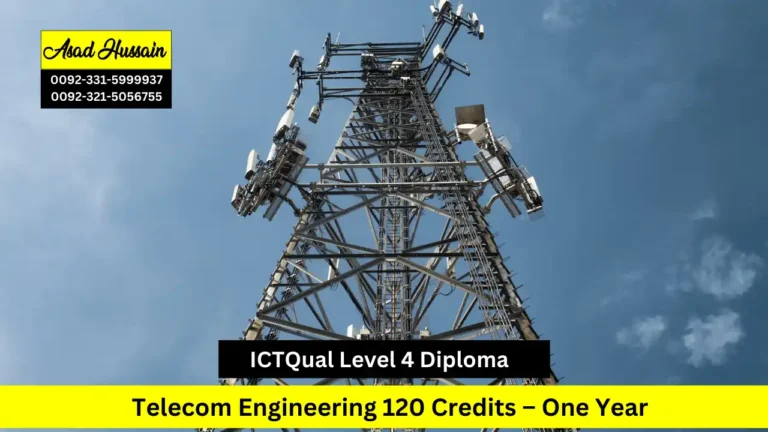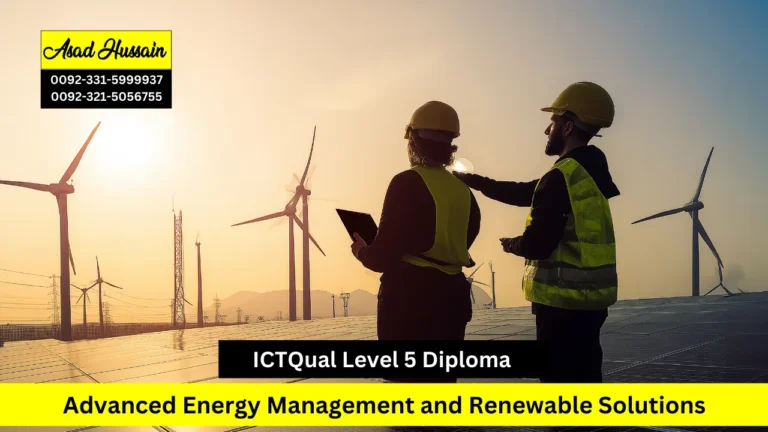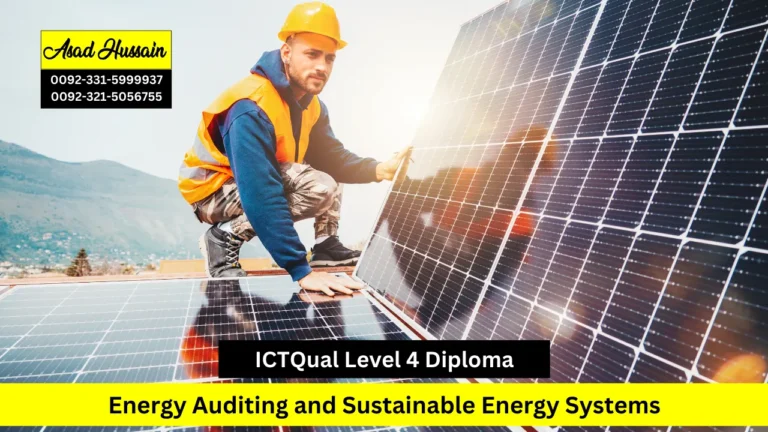In an era where sustainable practices and energy efficiency are at the forefront of global discussions, the demand for professionals who can navigate the complex landscape of energy management has never been higher. The Level 7 Diploma in Energy Management is designed to equip individuals with the knowledge and skills necessary to lead the charge towards a more sustainable and energy-efficient future.
The Level 7 Diploma in Energy Management is a comprehensive qualification that delves deep into the principles and practices of managing energy resources. This advanced program is tailored for individuals who are seeking to enhance their expertise in energy management, whether they are already working in the field or looking to transition into this critical sector.
The Level 7 Diploma in Energy Management is more than just a qualification; it is a gateway to a future where sustainable energy practices are the norm. As the world grapples with the challenges of climate change and energy resource depletion, the need for skilled energy managers is paramount. By enrolling in this program, you are not only investing in your career but also contributing to a larger global effort to create a sustainable and energy-efficient world.
Program Highlights
Mandatory Units
- Introduction to energy management
- Technical and Operational
- Behavioural Change and Motivation
- Waste Management
- Transport
- Water
- Procurement
- Information & Communications Technology
- Energy Assessments, Measurements and Verification
- Regulatory & Legal Compliance and Carbon Management
- Strategy/Plan in energy management
- Typically, candidates are required to hold a bachelor’s degree or equivalent qualification from a recognized institution. The degree should be in a relevant field such as engineering, environmental science, sustainability, or energy management.
- Since the course is conducted in English, proficiency in the English language is essential to comprehend course materials, participate in discussions, and complete assessments effectively.
- Basic technical skills, including proficiency in using computers, conducting data analysis, and understanding mathematical concepts, are beneficial for successfully completing the course requirements.
- While not always mandatory, many programs prefer candidates with relevant work experience in the energy sector or related industries. This experience may vary depending on the program but usually ranges from 2 to 5 years. Candidates without prior experience may be considered based on their educational background and other qualifications.
- Candidates required to attend an interview as part of the application process. The interview provides an opportunity for the admissions committee to assess the candidate’s suitability for the program and evaluate their interpersonal and communication skills.
Introduction to Energy Management
- Understand the fundamental concepts and importance of energy management.
- Identify the various forms of energy and their applications.
- Analyze the role of energy management in achieving sustainability goals.
- Develop a foundational knowledge of energy systems and their operations.
Technical and Operational
- Apply technical knowledge to improve energy efficiency in various systems.
- Evaluate the operational aspects of energy systems and identify areas for optimization.
- Understand the principles of energy generation, distribution, and consumption.
- Implement technical solutions to enhance energy performance.
Behavioural Change and Motivation
- Recognize the significance of behavioral change in energy conservation.
- Develop strategies to motivate individuals and organizations towards energy-efficient practices.
- Analyze the psychological and social factors influencing energy behavior.
- Implement programs to foster a culture of energy awareness and sustainability.
Waste Management
- Understand the principles and practices of waste management.
- Analyze the impact of waste on energy consumption and sustainability.
- Develop and implement waste reduction and recycling programs.
- Evaluate the effectiveness of waste management strategies in energy conservation.
Transport
- Examine the relationship between transport and energy consumption.
- Develop strategies to improve energy efficiency in transportation systems.
- Understand the environmental impact of various modes of transport.
- Implement sustainable transport solutions to reduce energy usage.
Water
- Understand the interconnection between water and energy management.
- Analyze the impact of water usage on energy consumption.
- Develop strategies to improve water efficiency and reduce energy use.
- Implement water conservation measures in various settings.
Procurement
- Understand the role of procurement in energy management.
- Develop strategies for procuring energy-efficient products and services.
- Analyze the lifecycle energy costs of procurement decisions.
- Implement sustainable procurement practices to enhance energy performance.
Information & Communications Technology
- Analyze the impact of ICT on energy consumption.
- Develop strategies to reduce energy use in ICT systems.
- Understand the role of ICT in monitoring and managing energy consumption.
- Implement ICT solutions to enhance energy efficiency.
Energy Assessments, Measurements and Verification
- Conduct comprehensive energy assessments to identify inefficiencies.
- Apply measurement and verification techniques to monitor energy performance.
- Develop skills in using energy assessment tools and software.
- Implement measurement and verification protocols to ensure accuracy and reliability.
Regulatory & Legal Compliance and Carbon Management
- Understand the legal and regulatory frameworks governing energy management.
- Analyze the implications of energy policies on organizational practices.
- Develop strategies to ensure compliance with energy regulations.
- Implement carbon management practices to reduce greenhouse gas emissions.
Strategy/Plan in Energy Management
- Develop comprehensive energy management strategies and plans.
- Analyze the components of effective energy management plans.
- Implement strategies to achieve energy efficiency and sustainability goals.
- Evaluate the success of energy management strategies and make necessary adjustments.
The Level 7 Diploma in Energy Management is tailored for professionals and aspiring leaders who are passionate about making a significant impact in the field of sustainable energy. This course is ideal for individuals currently working in energy-related industries, such as energy managers, sustainability consultants, engineers, and environmental specialists, seeking to deepen their knowledge and skills in energy management. It also caters to those looking to transition into careers focused on energy efficiency and sustainability, including professionals from sectors such as construction, manufacturing, transportation, and government. Whether you are aiming to advance your career, broaden your expertise, or contribute to global sustainability efforts, this diploma equips you with the essential tools and insights to succeed in the dynamic and crucial field of energy management.







